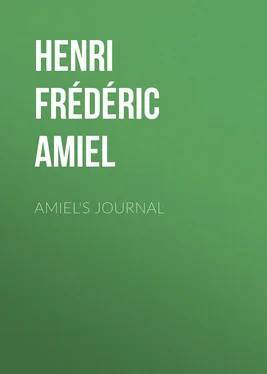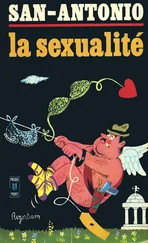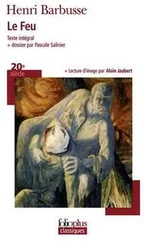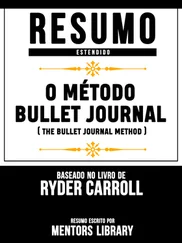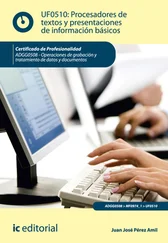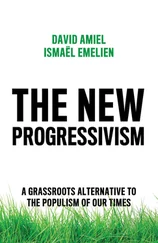Henri Frédéric Amiel - Amiel's Journal
Здесь есть возможность читать онлайн «Henri Frédéric Amiel - Amiel's Journal» — ознакомительный отрывок электронной книги совершенно бесплатно, а после прочтения отрывка купить полную версию. В некоторых случаях можно слушать аудио, скачать через торрент в формате fb2 и присутствует краткое содержание. Издательство: Иностранный паблик, Жанр: literature_19, foreign_antique, foreign_prose, Зарубежные любовные романы, на английском языке. Описание произведения, (предисловие) а так же отзывы посетителей доступны на портале библиотеки ЛибКат.
- Название:Amiel's Journal
- Автор:
- Издательство:Иностранный паблик
- Жанр:
- Год:неизвестен
- ISBN:нет данных
- Рейтинг книги:5 / 5. Голосов: 1
-
Избранное:Добавить в избранное
- Отзывы:
-
Ваша оценка:
- 100
- 1
- 2
- 3
- 4
- 5
Amiel's Journal: краткое содержание, описание и аннотация
Предлагаем к чтению аннотацию, описание, краткое содержание или предисловие (зависит от того, что написал сам автор книги «Amiel's Journal»). Если вы не нашли необходимую информацию о книге — напишите в комментариях, мы постараемся отыскать её.
Amiel's Journal — читать онлайн ознакомительный отрывок
Ниже представлен текст книги, разбитый по страницам. Система сохранения места последней прочитанной страницы, позволяет с удобством читать онлайн бесплатно книгу «Amiel's Journal», без необходимости каждый раз заново искать на чём Вы остановились. Поставьте закладку, и сможете в любой момент перейти на страницу, на которой закончили чтение.
Интервал:
Закладка:
Materialism coarsens and petrifies everything; makes everything vulgar and every truth false. And there is a religious and political materialism which spoils all that it touches, liberty, equality, individuality. So that there are two ways of understanding democracy....
What is threatened to-day is moral liberty, conscience, respect for the soul, the very nobility of man. To defend the soul, its interests, its rights, its dignity, is the most pressing duty for whoever sees the danger. What the writer, the teacher, the pastor, the philosopher, has to do, is to defend humanity in man. Man! the true man, the ideal man! Such should be their motto, their rallying cry. War to all that debases, diminishes, hinders, and degrades him; protection for all that fortifies, ennobles, and raises him. The test of every religious, political, or educational system, is the man which it forms. If a system injures the intelligence it is bad. If it injures the character it is vicious. If it injures the conscience it is criminal.
August 12, 1852. (Lancy.)—Each sphere of being tends toward a higher sphere, and has already revelations and presentiments of it. The ideal under all its forms is the anticipation and the prophetic vision of that existence, higher than his own, toward which every being perpetually aspires. And this higher and more dignified existence is more inward in character, that is to say, more spiritual. Just as volcanoes reveal to us the secrets of the interior of the globe, so enthusiasm and ecstasy are the passing explosions of this inner world of the soul; and human life is but the preparation and the means of approach to this spiritual life. The degrees of initiation are innumerable. Watch, then, disciple of life, watch and labor toward the development of the angel within thee! For the divine Odyssey is but a series of more and more ethereal metamorphoses, in which each form, the result of what goes before, is the condition of those which follow. The divine life is a series of successive deaths, in which the mind throws off its imperfections and its symbols, and yields to the growing attraction of the ineffable center of gravitation, the sun of intelligence and love. Created spirits in the accomplishment of their destinies tend, so to speak, to form constellations and milky ways within the empyrean of the divinity; in becoming gods, they surround the throne of the sovereign with a sparkling court. In their greatness lies their homage. The divinity with which they are invested is the noblest glory of God. God is the father of spirits, and the constitution of the eternal kingdom rests on the vassalship of love.
September 27, 1852. (Lancy.)—To-day I complete my thirty-first year....
The most beautiful poem there is, is life—life which discerns its own story in the making, in which inspiration and self-consciousness go together and help each other, life which knows itself to be the world in little, a repetition in miniature of the divine universal poem. Yes, be man; that is to say, be nature, be spirit, be the image of God, be what is greatest, most beautiful, most lofty in all the spheres of being, be infinite will and idea, a reproduction of the great whole. And be everything while being nothing, effacing thyself, letting God enter into thee as the air enters an empty space, reducing the ego to the mere vessel which contains the divine essence. Be humble, devout, silent, that so thou mayest hear within the depths of thyself the subtle and profound voice; be spiritual and pure, that so thou mayest have communion with the pure spirit. Withdraw thyself often into the sanctuary of thy inmost consciousness; become once more point and atom, that so thou mayest free thyself from space, time, matter, temptation, dispersion, that thou mayest escape thy very organs themselves and thine own life. That is to say, die often, and examine thyself in the presence of this death, as a preparation for the last death. He who can without shuddering confront blindness, deafness, paralysis, disease, betrayal, poverty; he who can without terror appear before the sovereign justice, he alone can call himself prepared for partial or total death. How far am I from anything of the sort, how far is my heart from any such stoicism! But at least we can try to detach ourselves from all that can be taken away from us, to accept everything as a loan and a gift, and to cling only to the imperishable—this at any rate we can attempt. To believe in a good and fatherly God, who educates us, who tempers the wind to the shorn lamb, who punishes only when he must, and takes away only with regret; this thought, or rather this conviction, gives courage and security. Oh, what need we have of love, of tenderness, of affection, of kindness, and how vulnerable we are, we the sons of God, we, immortal and sovereign beings! Strong as the universe or feeble as the worm, according as we represent God or only ourselves, as we lean upon infinite being, or as we stand alone.
The point of view of religion, of a religion at once active and moral, spiritual and profound, alone gives to life all the dignity and all the energy of which it is capable. Religion makes invulnerable and invincible. Earth can only be conquered in the name of heaven. All good things are given over and above to him who desires but righteousness. To be disinterested is to be strong, and the world is at the feet of him whom it cannot tempt. Why? Because spirit is lord of matter, and the world belongs to God. “Be of good cheer,” saith a heavenly voice, “I have overcome the world.”
Lord, lend thy strength to those who are weak in the flesh, but willing in the spirit!
October 31, 1852. (Lancy.)—Walked for half an hour in the garden. A fine rain was falling, and the landscape was that of autumn. The sky was hung with various shades of gray, and mists hovered about the distant mountains, a melancholy nature. The leaves were falling on all sides like the last illusions of youth under the tears of irremediable grief. A brood of chattering birds were chasing each other through the Shrubberies, and playing games among the branches, like a knot of hiding schoolboys. The ground strewn with leaves, brown, yellow, and reddish; the trees half-stripped, some more, some less, and decked in ragged splendors of dark-red, scarlet, and yellow; the reddening shrubs and plantations; a few flowers still lingering behind, roses, nasturtiums, dahlias, shedding their petals round them; the bare fields, the thinned hedges; and the fir, the only green thing left, vigorous and stoical, like eternal youth braving decay; all these innumerable and marvelous symbols which forms colors, plants, and living beings, the earth and the sky, yield at all times to the eye which has learned to look for them, charmed and enthralled me. I wielded a poetic wand, and had but to touch a phenomenon to make it render up to me its moral significance. Every landscape is, as it were, a state of the soul, and whoever penetrates into both is astonished to find how much likeness there is in each detail. True poetry is truer than science, because it is synthetic, and seizes at once what the combination of all the sciences is able at most to attain as a final result. The soul of nature is divined by the poet; the man of science, only serves to accumulate materials for its demonstration.
November 6, 1852.—I am capable of all the passions, for I bear them all within me. Like a tamer of wild beasts, I keep them caged and lassoed, but I sometimes hear them growling. I have stifled more than one nascent love. Why? Because with that prophetic certainty which belongs to moral intuition, I felt it lacking in true life, and less durable than myself. I choked it down in the name of the supreme affection to come. The loves of sense, of imagination, of sentiment, I have seen through and rejected them all; I sought the love which springs from the central profundities of being. And I still believe in it. I will have none of those passions of straw which dazzle, burn up, and wither; I invoke, I await, and I hope for the love which is great, pure and earnest, which lives and works in all the fibres and through all the powers of the soul. And even if I go lonely to the end, I would rather my hope and my dream died with me, than that my soul should content itself with any meaner union.
Читать дальшеИнтервал:
Закладка:
Похожие книги на «Amiel's Journal»
Представляем Вашему вниманию похожие книги на «Amiel's Journal» списком для выбора. Мы отобрали схожую по названию и смыслу литературу в надежде предоставить читателям больше вариантов отыскать новые, интересные, ещё непрочитанные произведения.
Обсуждение, отзывы о книге «Amiel's Journal» и просто собственные мнения читателей. Оставьте ваши комментарии, напишите, что Вы думаете о произведении, его смысле или главных героях. Укажите что конкретно понравилось, а что нет, и почему Вы так считаете.
